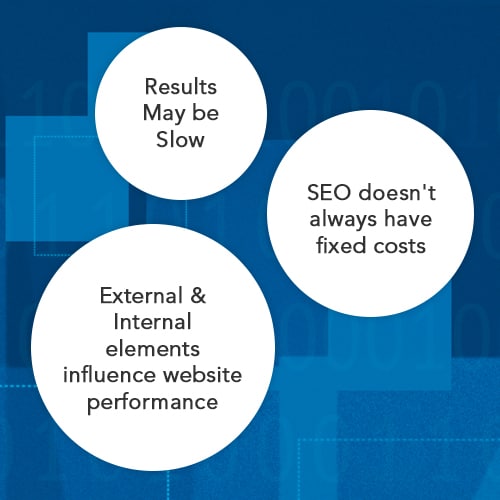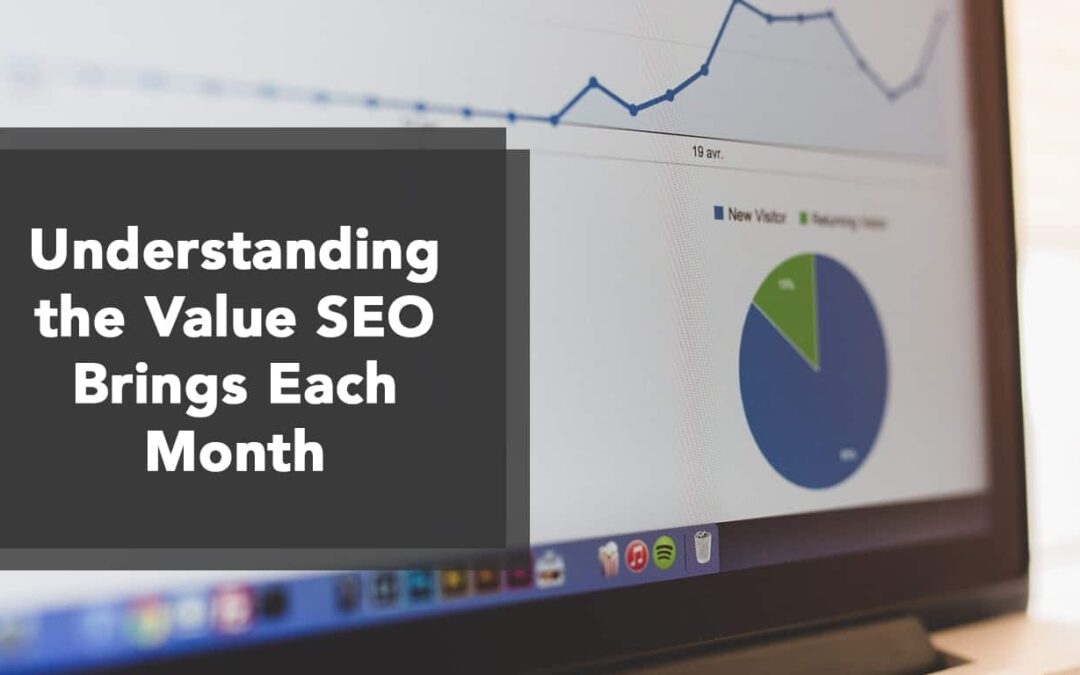Just like any other marketing channel, it’s important to measure the ROI or Return on Investment from your SEO efforts. Regardless of whether you do everything internally or hire an agency, always measure the value you get from any SEO investment.
It’s your money after all…
Calculating SEO ROI tells you whether you’re benefiting from the investment or bleeding cash.
So how can you tell if your SEO efforts are paying off? Read on and we’ll cover the analytics tracking and everything else you need to know.
Before we get into that, you’ll need to know some basic terminology, starting with ROI:
Table of Contents
What is SEO ROI?
ROI or Return on Investment is a metric that measures how profitable an investment is. In the case of SEO, it would measure how much revenue your website generates as a result of your SEO efforts. To find the true ROI though, you’ll need to subtract what you’ve invested into your site.

Why is it Important to Measure SEO ROI?
There’s many reasons to measure your ROI from SEO. First, it will give you insights into how well your site converts, which can benefit your other efforts like paid ads and direct outreach.
It will help you identify areas of your SEO campaign needing more time and attention.
That way, you’ll be able to formulate a strategy focused on the areas that produce the highest gains. Remember that data is power.
Without concrete data on what you’re accomplishing, it’s going to be tough to justify the added expense of managing an SEO campaign.

What are the Challenges of Calculating SEO ROI?
SEO is a long-term investment. It’s not all about getting high rankings on the search engines and growing your traffic overnight, so you can’t expect to see results after just one month or even six months in some cases. It takes time before you will be able to calculate an accurate ROI.

Like it or not, you’ll be at a loss for the first few weeks of any SEO campaign. While that’s unavoidable, it shouldn’t discourage you because results get better over time.
Another challenge SEOs face is that ROI can be affected by a lot of factors. There are many external and internal elements that could influence your website’s performance in the search engines, so it’s not always easy to isolate the impact of one task over another.
Related Post: Do Bold Keywords Help SEO?
Additionally, unlike other marketing strategies, SEO doesn’t usually have fixed and tangible costs associated with it. There’s direct labor, tools, subscriptions and in some cases, sponsored content budgets. The need for each changes as the campaign progresses.
It’s pretty complicated and difficult to attribute an exact cost, but stick with us for this next section and learn how to break it all down into something your accountant won’t totally hate you for.
How to Calculate SEO ROI Without Driving Your Accountant to Day Drinking
Although SEO ROI is not easy to calculate, it’s not impossible either. Break everything you spend on SEO into these categories below and you’re halfway to calculating ROI:
Calculating SEO Investments
- Internal SEO Resources – The most crucial internal resources that you need to invest in are your time and money. You can’t expect high rankings if you don’t have enough people working on the SEO campaign or if there’s no budget allocated for it. Figuring out your internal SEO investments is less complicated than other items. Simply calculate how many hours and dollars were invested so far.

- Outsourced Resources – If you have outsourced some of your SEO work, then you need to determine the cost of those services. Usually, calculating this is pretty straightforward as agencies generally charge per project or per contract.

- Investment in SEO Tools – Another investment that you need to consider in calculating SEO ROI is the cost of tools and software.

- Management Hours – This is the most difficult item to quantify and also the most important. Keep track of your time spent instructing your team and dealing with vendors.

By combining all these costs, you should be able to come up with the “investment” part of your SEO ROI calculation. These costs may change from time to time, so be sure to account for the changes when you are evaluating the success of your SEO investment.

SEO Conversion Tracking and Analysis
Now that you know how much you’ve spent, what’s the other side of the equation looking like?
To figure that out, you’ll need great tracking tools so you can dial in your website’s focus into the most valuable keywords for your brand.
Identifying those keywords is probably one of the hardest tasks in SEO, but it’s also very important. After all, if you’re spending time and money on something that isn’t actually bringing conversions, then there might be a problem with your campaign strategy.
Luckily, tools like Google Analytics enable marketers to track which keywords are generating organic traffic and even conversions. You can use the data from these reports to calculate SEO ROI based on how many sales you get each month from your organic conversions.
- eCommerce Conversion Values – If you’re running an eCommerce website, it’s important to track the monetary value of each conversion. This is easily done by setting up a goal in Google Analytics and tracking the purchase values associated with each conversion. Once you have this data, you can simply divide it by your total SEO investment to get the “Value per Conversion”.

- Lead Generation Conversion Values – If your website is generating leads from organic traffic, then you need to track the value of each lead. This can be done by setting up a conversion goal in Google Analytics and tagging all generated leads accordingly. Then simply divide the total SEO investment with the number of conversions to get the “Value per Conversion”.

- Other Values – Other values that can be tracked and used for calculating SEO ROI are downloads, form submissions, white papers downloaded, etc. Basically, any goal that has a value associated with it can be used to calculate the return on investment of your SEO campaign.
Calculating Your Return on Investment
At this stage you now have the necessary details for you to calculate your ROI:
- Total Cost of Investment
- Value of Conversions

To calculate your SEO ROI, you can use the formula below:
(Value of Conversions – Cost of Investment)/ Cost of Investment
Let’s plug in some values so it’s easier to understand. Say your Value of Conversions for a certain month is $100,000. And you invested $20,000 during that same period. 
Putting these figures into the formula discussed above, we get:
($100,000 – $20,000)/ $20,000 = $4
It means that for every dollar spent on SEO, there was a return of $4. To get the ROI percentage, multiply $4 by 100%. You get 400%. So your SEO ROI is 400%. Easy enough, right?
Conclusion
SEO can be a great investment for your business, but it’s not always easy to calculate the ROI. It’s important to remember that there are many factors that could influence your website’s performance in the search engines and ROI will fluctuate over time.
However, by using the tips mentioned in this article, you should be able to get a good estimate of how your SEO investments are performing.
As long as the overall trend is upward, keep investing in your website and improve your returns.
We hope you enjoyed our tips and tricks on calculating SEO ROI. It’s not an easy task, but we’re here to make the whole process a little easier for you!
Set up a free SEO audit with our team and ask about our custom analytics and reporting that takes all the guesswork out of your ROI calculations.







